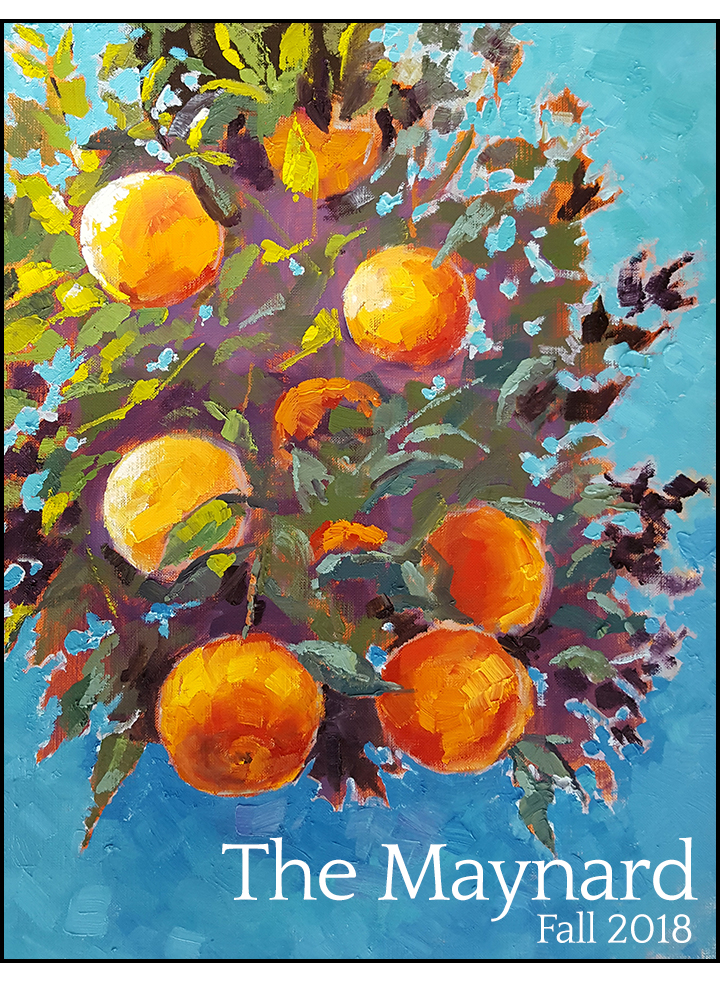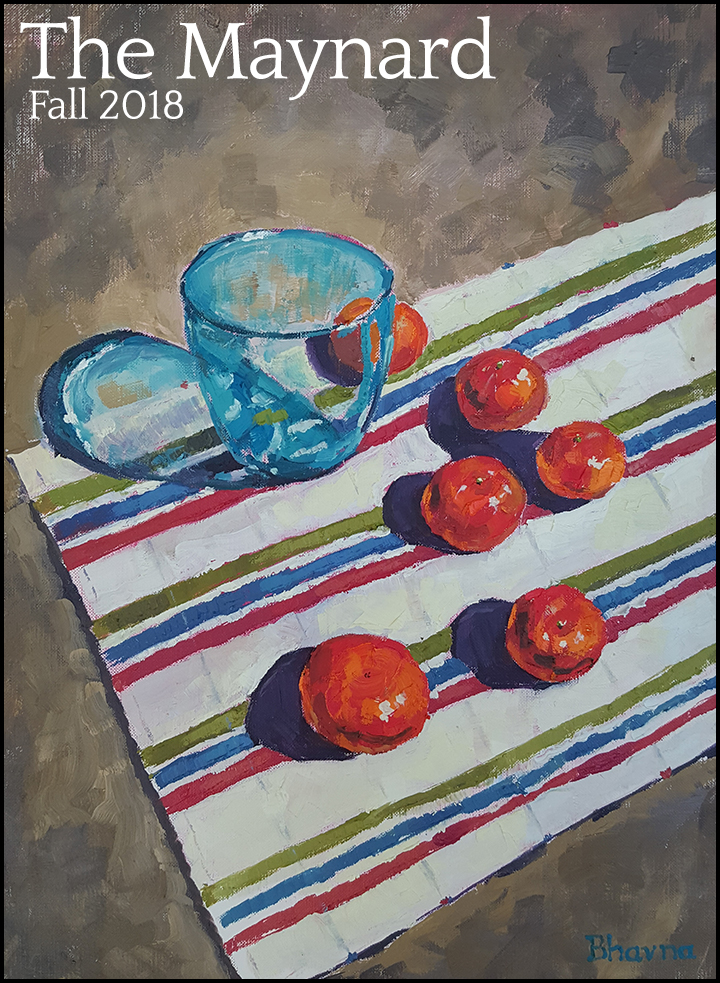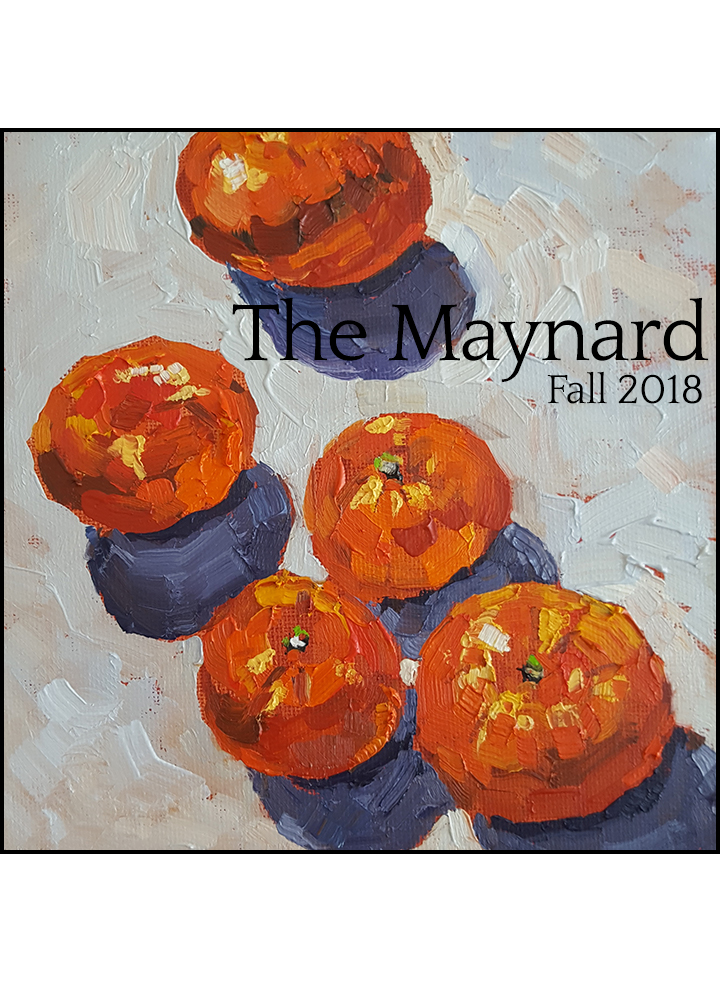fall 2018
Table of Contents
Return to Home PageIntroduction
For Murphy Glow Stick Fingers Jade Riordan
The First Treatise![]() The Second Treatise
The Second Treatise![]() The Third Treatise
The Third Treatise![]() Yara Farran
Yara Farran
Marketplace![]() Road Trip, 1985
Christopher Evans
Road Trip, 1985
Christopher Evans
Ganapati Brume Yuugen Gulf Adam Day
Tulips for Barbara![]() Ann E. Michael
Ann E. Michael
forbidden music![]() we should probably
we should probably![]() Conor Barnes
Conor Barnes
Poetic Outcrops poetic extracts: study #8 Sean Howard
If You See Something, Say Something![]() James Cagney
James Cagney
George Bowering: Scatter-Gun![]() Ken Cathers: the sum
Ken Cathers: the sum![]() Craig Dworkin: The Déjà Vu of Déjà Dit
Craig Dworkin: The Déjà Vu of Déjà Dit![]() Stephen Bett
Stephen Bett
Under the Arbor![]() Heather Bourbeau
Heather Bourbeau
Re: Wards of the Crown![]() Jeremy Luke Hill
Jeremy Luke Hill
Ode to the Cockroach my tiny minnow Cara Waterfall
Phantom![]() Courses
Courses![]() Steven Ray Smith
Steven Ray Smith
Victims of Captology![]() Kyla Jamieson
Kyla Jamieson
Friendly Nuts![]() Carl Joesf Homolka
Carl Joesf Homolka
Introduction
Welcome, dear Reader, to the Fall 2018 issue of The Maynard.
For this issue, we were fortunate to work with Calliope Babalis, Ivanna Baranova, and Leena Niemela—who is also our Social Media Manager—on the editorial team. Check out their bios here to learn about the newest members of The Maynard community. Along with Calliope, Ivanna, and Leena, we’re thrilled to share the Fall 2018 issue—our 28th!—with you.
Over the last few months, we’ve been immersed in poems—over 800 of them—that were sent our way. This kind of enthusiasm and support for a small journal like The Maynard is inspiring and points to the verve of communities built around poetry. These varied communities matter. They enrich the world and make it more fulfilling. Now, perhaps more than at any other time in recent memory, multifarious voices need to be heard, are being heard. But never enough. So now, perhaps more than in the past poetry—and the communities it creates—is needed, vitally, in the sense of really being alive. Poetry gives voice to other ways of seeing and can counter a culture that Billy-Ray Belcourt rightly describes as based on “a string of murders incriminated by a series of attempted murders.”
A poem can explicitly protest, subtly undermine, proffer wild alternatives, hint at intimate minutiae. Therein lies poetry’s allure and potential; distinctive voices and forms, and offbeat poetic languages draw us into topical worlds, introduce us to other histories and experiences, and transform our mindset. On these grounds we form plasmic communities of respect, where desire, antagonisms, rage, sorrow, and laughter speak and play.
Gracing this issue’s cover are three images by California-based artist Bhavna Misra. The rotating representations of oranges on a tree, in close-up, and as refreshment befit the varied perspectives of the poems featured.
For the Fall 2018 issue, the five members of the editorial team selected 23 voices and 35 poems, 20 of them with audio recordings. In conversation with each other and with the larger world we share, the pieces in this issue offer weird and wonderful perspectives. Have you ever thought like a porcelain cat? Brianne Battye’s “Dust” does, while exploring possession, loss and the passage of time. Not persuaded? Maybe Kyla Jamieson’s “Victims of Captology” and its observation on the ubiquity of technological prostheses is more familiar. “Camera Man,” by Luc Cooper, also alludes to mediated ways of being in the world, and prompts us to rethink aesthetic processes.
As mirror, window or liminal space betwixt, poems can stimulate a desire for care and concern for the other, and question relations in their infinite forms. Conor Barnes’ fragments capture a dubious space, and pull the reader into the uncertainties of the relationship. Yarra Farran’s treatises work the currents running through self and other, testing what can and cannot be said. In Christopher Evans’ “Road Trip, 1985,” intergenerational misunderstandings are disburdened by poetic wit; and “Drywall,” by Amanda Proctor, navigates family trauma and an unfulfilled need to know. These poems, along with the others in the issue—including shout outs to George Bowering (among others), playfully acute takes on immigration, ladybugs, cockroaches and more—produce a dynamic where voices come together, sometimes in dissonance, to surprise us out of our ordinary.
Happy reading and listening,
Nick Hauck, Ram Randhawa, Calliope Babalis,
Ivanna Baranova & Leena Niemela
Editors, Fall 2018 issue
The Maynard



